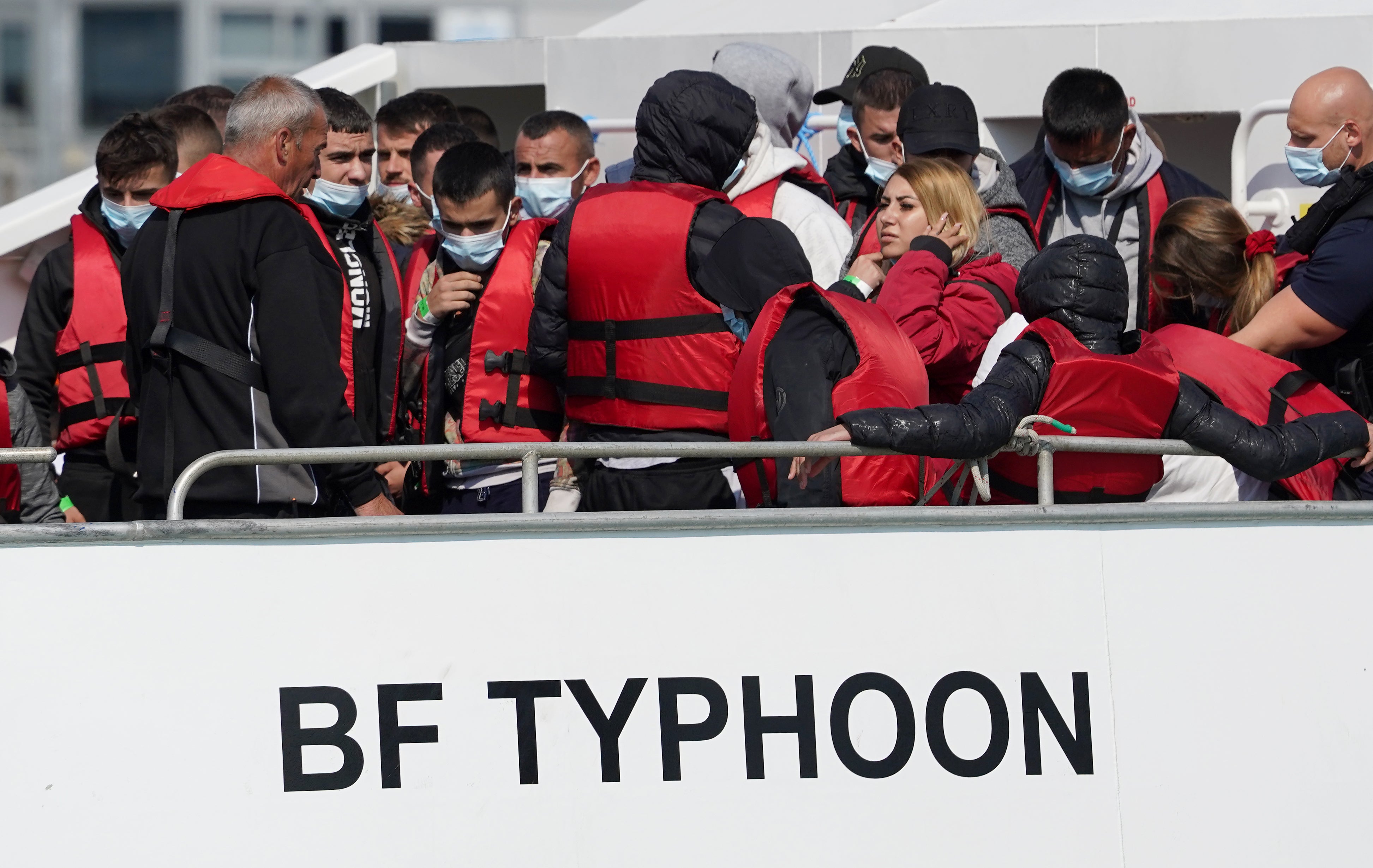More migrants crossed Channel so far this year than all of 2021, figures suggest
Last year’s total was 28,526, according to official figures.

Your support helps us to tell the story
From reproductive rights to climate change to Big Tech, The Independent is on the ground when the story is developing. Whether it's investigating the financials of Elon Musk's pro-Trump PAC or producing our latest documentary, 'The A Word', which shines a light on the American women fighting for reproductive rights, we know how important it is to parse out the facts from the messaging.
At such a critical moment in US history, we need reporters on the ground. Your donation allows us to keep sending journalists to speak to both sides of the story.
The Independent is trusted by Americans across the entire political spectrum. And unlike many other quality news outlets, we choose not to lock Americans out of our reporting and analysis with paywalls. We believe quality journalism should be available to everyone, paid for by those who can afford it.
Your support makes all the difference.More migrants have crossed the English Channel to the UK so far this year than in the whole of 2021, Government figures suggest.
Some 601 people were detected on Monday in 19 boats, the Ministry of Defence (MoD) said, taking the provisional total for the year to 28,561.
This suggests an average of 32 people per boat in the latest day of crossings.
Last year’s total was 28,526, according to official figures.
The 2022 figure to date is nearly double the number that had been detected by this point last year, which was just under 14,500.
There have been 3,518 crossings recorded in September so far, analysis shows.
August 22 saw the highest daily total on record, with 1,295 people crossing in 27 boats.
It is more than four months since the then home secretary Priti Patel announced plans to send migrants to Rwanda to try to deter people from crossing the Channel.
Since then 23,293 people have arrived in the UK after making the journey.
On April 14 Ms Patel signed what she described as a “world-first” agreement with Rwanda, under which the East African country will receive migrants deemed by the UK to have arrived “illegally”, and are therefore inadmissible under new immigration rules.
However, the first deportation flight, due to take off on June 14, was grounded amid legal challenges.
Several asylum seekers, the Public and Commercial Services Union and charities Care4Calais, Detention Action and Asylum Aid are embroiled in a court case with the Home Office as they challenge the legality of the policy.
The number of people reaching the UK in small boats from France after navigating busy shipping lanes has increased steadily in recent years.
Some 299 were detected in 2018, followed by 1,843 in 2019 and 8,466 in 2020, official figures show.
Despite the growing numbers, the small boat arrivals are a fraction of the number of people going to mainland Europe.
Data from the UN’s refugee agency shows at least 120,441 people arrived in Europe via the Mediterranean by land and sea last year.
The MoD said its data is taken from “live operational systems” and is subject to change, “including reduction”.
Enver Solomon, chief executive of the Refugee Council, said: “With record numbers of people crossing the Channel this year, we are seeing how the Government’s policies enshrined in the recent Nationality and Borders Act and their Rwanda deal are doing absolutely nothing to deter desperate people jumping on boats because they do nothing to address the reasons people come.
“Let’s not forget the men, women and children coming across the Channel are fleeing atrocities like those in Ukraine and Afghanistan. No-one risks their own or family’s life unless they are running from dangers more acute than they face on these journeys.
“Criminalising them and treating them as human cargo to be sent to Rwanda is not right. Such policies were always destined to fail, cause even more pain and suffering and at a huge cost to the public purse.
“We need to immediately start having a grown-up conversation with France and the EU about sharing responsibility. We need a fair and humane asylum system, which means well thought out, long-term solutions that address why people are forced from their homes and provide them with safe routes to the UK.”
The Home Office did not comment on the latest crossings. The department has previously said its reforms to tackle the number of migrants coming to the UK would “take time” but the Government was “determined to bring lasting change” to the asylum system so that it is “fair but firm”.
Subscribe to Independent Premium to bookmark this article
Want to bookmark your favourite articles and stories to read or reference later? Start your Independent Premium subscription today.